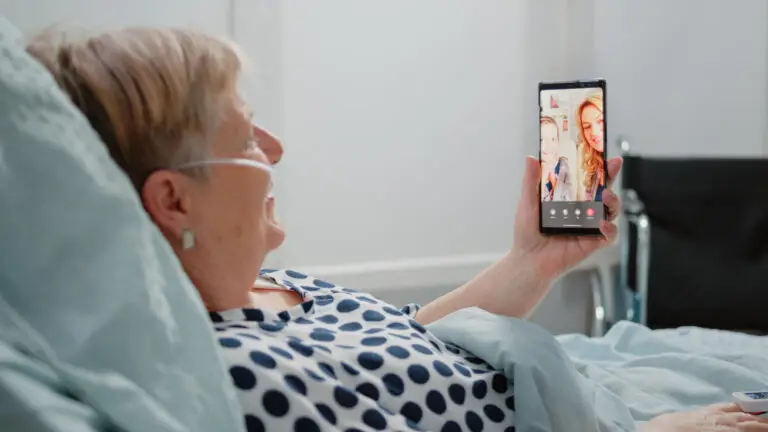Introduction
The United States Healthcare System has experienced serious challenges over the past few decades. The major challenge was the shortage of healthcare workforce especially Nurses (Hassmiller and Reinhard, 2015). The Goal of the US healthcare system is to provide affordable, accessible and quality of care to all patients, and nurses play a crucial role in achieving this goal. To enhance the competency of nurses, there has been several reforms in the US healthcare system. Advance Nursing Practice is one of the most important acts in this regard, that is aimed to make advancement in the nursing profession while offering several career growth opportunities in various roles. IOM’s report has led to a remarkable impact on US healthcare reform through its recommendations for nursing practice. This essay is aimed to assess how much progress has been made on IOM’s report. This essay also explores that how this report has transformed or influenced nursing practice, nursing education and training, nursing leadership, and nursing workforce development. A conclusion is derived after reviewing all discussion.
The Institute of Medicine (IOM) Report
The IOM future of nursing report is the thorough examination and recommendations about advancing the nursing roles and responsibility to lead change in healthcare. Health and Medicine Division is responsible for independent and objective analysis of major issues and problems in the healthcare system and identifying their possible solutions. With this aim, in 2008 IOM and The Robert Wood Johnson Foundation (RWJF) worked together on a two-year initiative focusing on changing and advancing the nursing practice to meet the diverse needs of healthcare. This report has made recommendations as well as action-oriented blueprints to bring advancement in the nursing profession (Hassmiller and Reinhard, 2015).
The work of the Robert Wood Foundation Committee Initiative
The major contribution of RWFCI on the future of nursing was to research to develop a revolutionary report on the future of the nursing profession. An Ad hoc Committee was developed which was assigned to analyse the demands of transformed healthcare and nursing profession. The committee was also tasked to make recommendation including the suggestions for nursing role and nursing service delivery. This committee also suggested a wide range of recommendations for healthcare system reforms to meet the changing requirements of the healthcare environment. The major contribution of this committee was to find innovative ways to address the challenges of the nurse shortage (Hassmiller and Reinhard, 2015).
IOM Report recommendations: The four “Key Messages
The recommendations in the IOM report was based on four key messages discussed as following,
- There is a need to transform nursing practice
The first key message of this report was focused on transforming the nursing practice, as a traditional nursing practice was failing to attract new workforce and to deal with the complex nature of the healthcare system. Therefore, the first message was “nurse professionals should practice to the full extent of their education and training”. This message provided the foundation for Advance Practice Registered Nurses and development of distinct roles for nursing professionals including leadership, nurse advocate, nurses in finance, nurse researcher and nurses in regulator body and policy development (Hassmiller and Reinhard, 2015).
- There is an immense need to make transformation in Nursing education
The advanced practice nursing requires a competent nurse workforce and education is the key to increase the competency of nursing professionals. The second key message was “the nurse professionals must attain higher standards of education and training through a better and transformed educational system that promotes whole academic development”. This message highlights the importance of bringing change in education form improving the nurse’s service and advancing the nursing profession (Hassmiller and Reinhard, 2015).
- There is a need to bring transformation in leadership.
The advancement in the nursing profession and education requires a positive change and leadership role is crucial for influencing these changes. The third key message was “Nurse professionals must perform a full partnership role with physicians and other healthcare professionals in the USA”. In traditional nursing practice, nurses were performing a side role and there was no concept of leadership for nurses. A transformed healthcare system requires leadership roles in every level, and nurse professionals are encouraged to acquire these roles (Hassmiller and Reinhard, 2015).
- There is a need for improved data on healthcare workforce
The collection of proper data on traditional roles and responsibilities, challenges, and identifying the needs for change requires collection of appropriate data. Therefore, the fourth message was “Improved data collection is needed for efficient workforce planning and policy development, there is also a need for better information infrastructure.” This message also highlights the importance of IT in the healthcare revolution (Hassmiller and Reinhard, 2015).
The Role of State-Based Action Coalitions
The state-based action coalitions are present in almost every state of US and tasked to carry out campaigns at different levels in advocacy to build a healthier community with better nursing practice. The campaign for action is aimed to build and maintain the required changes to improve healthcare for all population within-country (Chaudhry et al., 2019). The action coalition campaigns work to achieve IOM report objective through their wide range of activities, two important initiatives are discussed as following,
The Action coalition campaigns are considered as deriving forces as they are working as a network and are in a better position to facilitate the change for advance nursing practice. They collect funding’s to support the activities for improving future nursing practice. The New Mexico Centre for Nursing Excellence took the initiative to develop a plan for nursing education to improve school curriculum for advance nursing practice. The new Indiana coalition is aimed to launch nursing -a summit to enhance the engagement of healthcare stakeholders and other individuals to take their opinions about current issues and their possible solution for advance nursing practice (Chaudhry et al., 2019)
Barriers to Advancement in Nursing Practice and The Role of Nurse Advocate
A growing body of research heightened that nurses are capable of working in several advance practice roles yet are facing barriers to their practice. The Practice restrictions on APN is one of the major barriers and Physician oversight of advancement in nursing practice is another barrier towards the advancement of nursing practice. Nurse advocates can play an important role in highlighting these issues to the regulatory body through increasing awareness about the importance of advance nursing practice. They can also make effective collaboration with physicians to address their concerns (Sarver, Cichra and Kline, 2015).
Conclusion
IOM’s report has led to a remarkable impact on US healthcare reform through its recommendations for nursing practice. The recommendations in the IOM report was based on four key messages including need to transform nursing practice, need to make transformation in Nursing education, need to bring transformation in leadership, and need for improved data on healthcare workforce. The Action coalition campaigns are considered as deriving forces as they are working as a network and are in a better position to facilitate the change for advance nursing practice.
References
Chaudhry, H. J., Kirch, D. G., Nasca, T. J., Katsufrakis, P. J., McMahon, G. T., Shannon, S. C., & Ciccone, A. L. (2019). Navigating Tumultuous Change in the Medical Profession: The Coalition for Physician Accountability. Academic Medicine, 94(8), 1103-1107.
Hassmiller, S. B., & Reinhard, S. C. (2015). A bold new vision for America’s health care system: The Future of Nursing report becomes a catalyst for change. Nursing outlook, 63(1), 41-47.
Sarver, W., Cichra, N., & Kline, M. (2015). Perceived benefits, motivators, and barriers to advancing nurse education: Removing barriers to improve success. Nursing Education Perspectives, 36(3), 153-156.isi.








